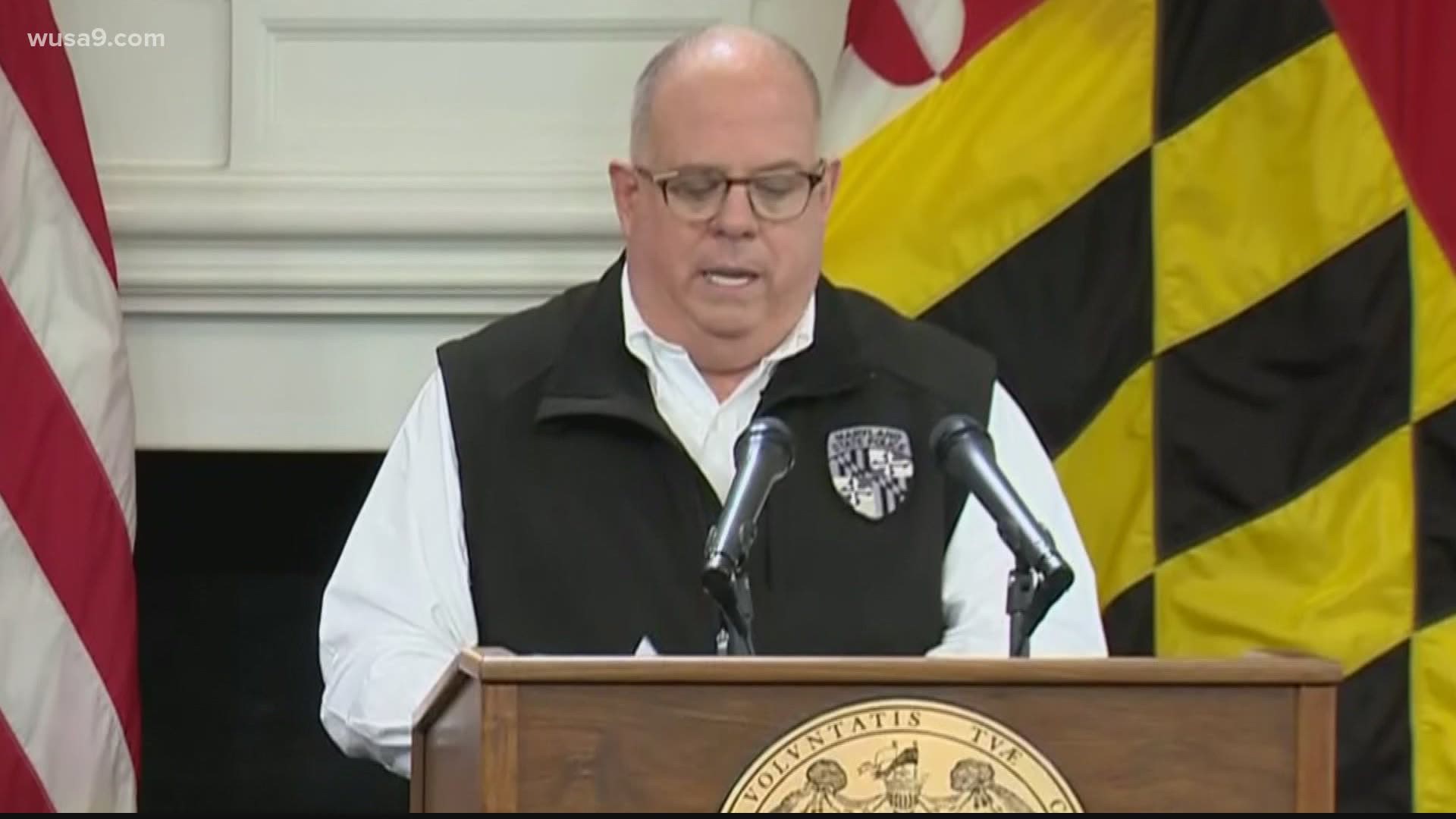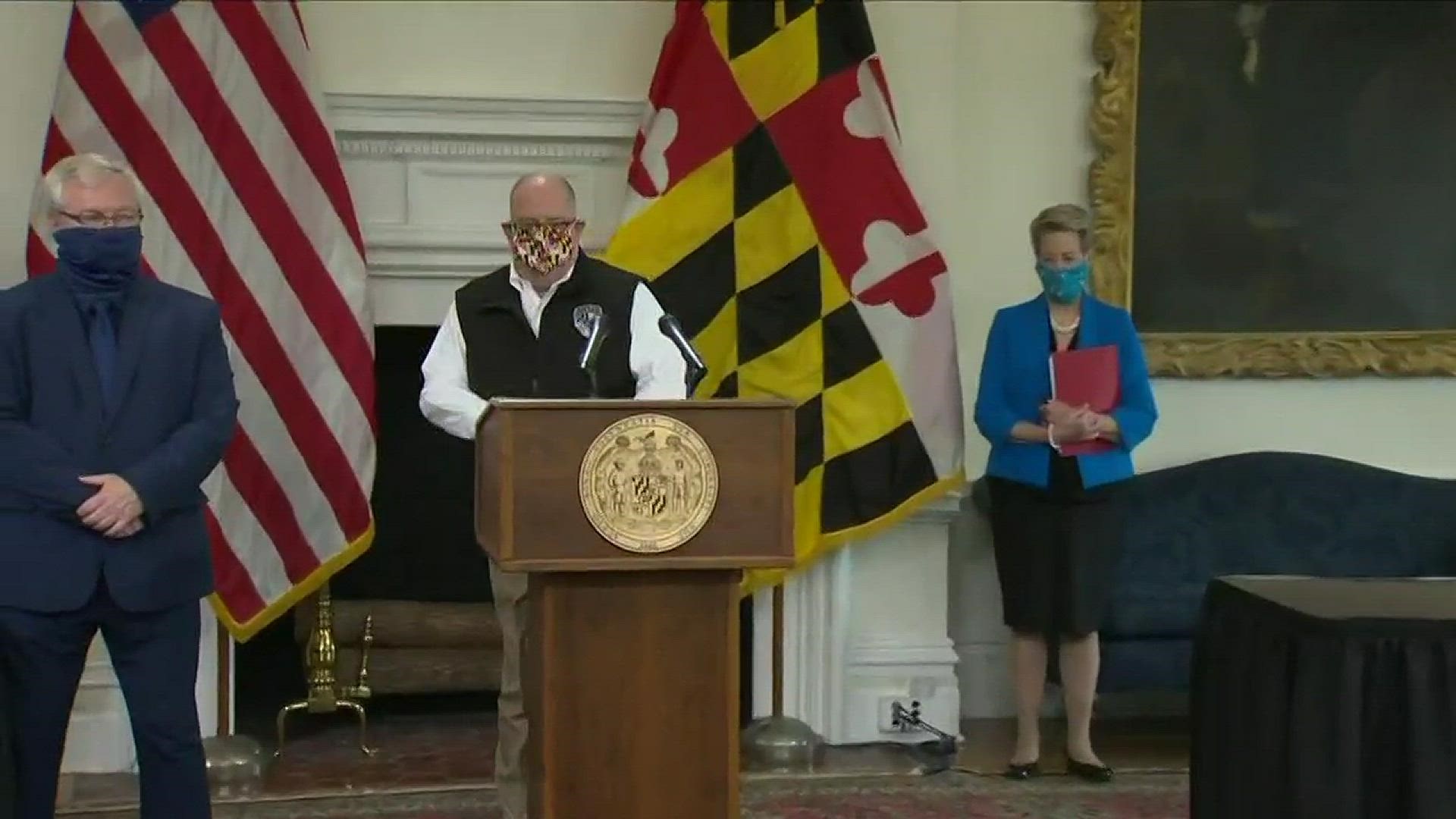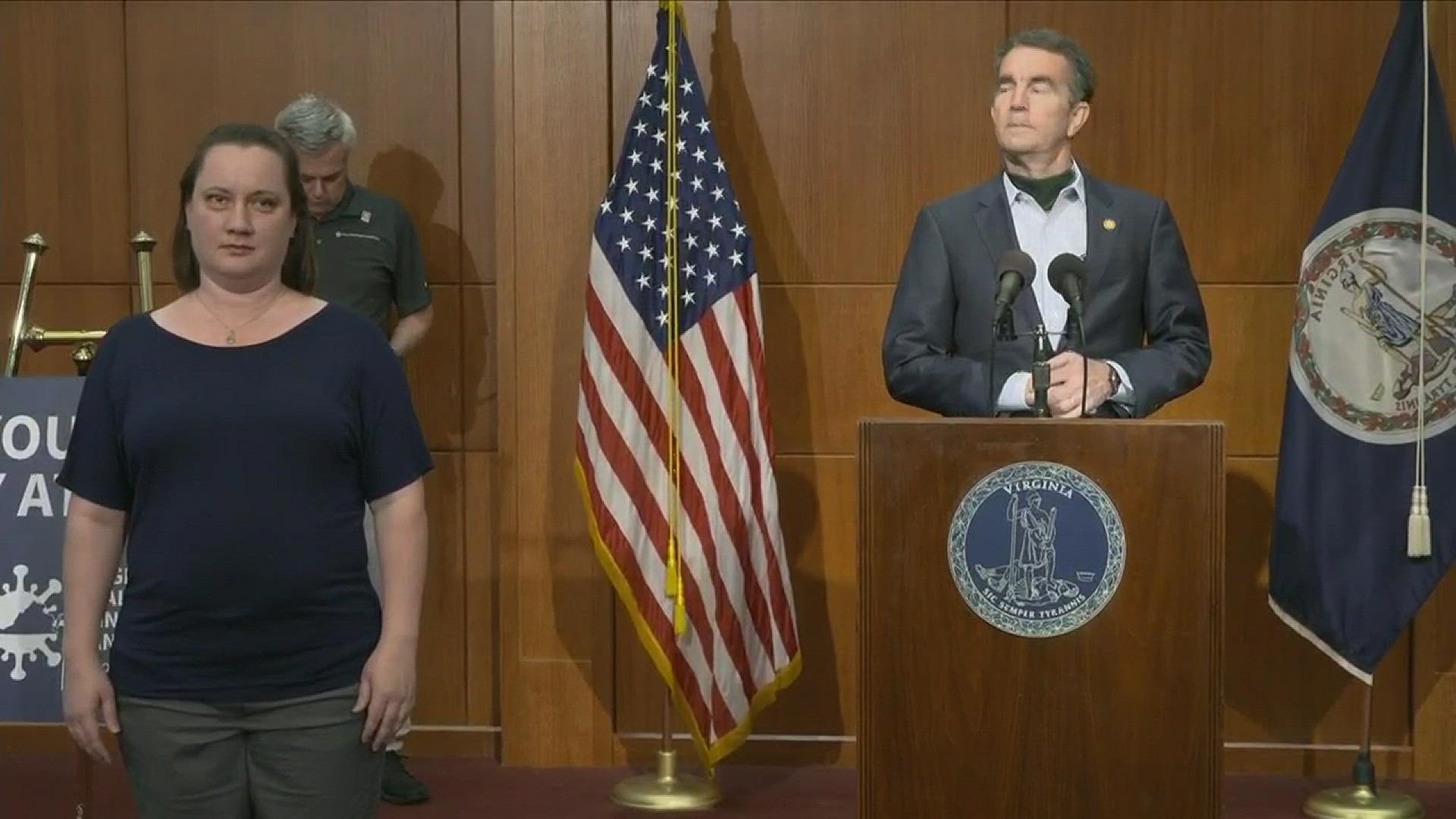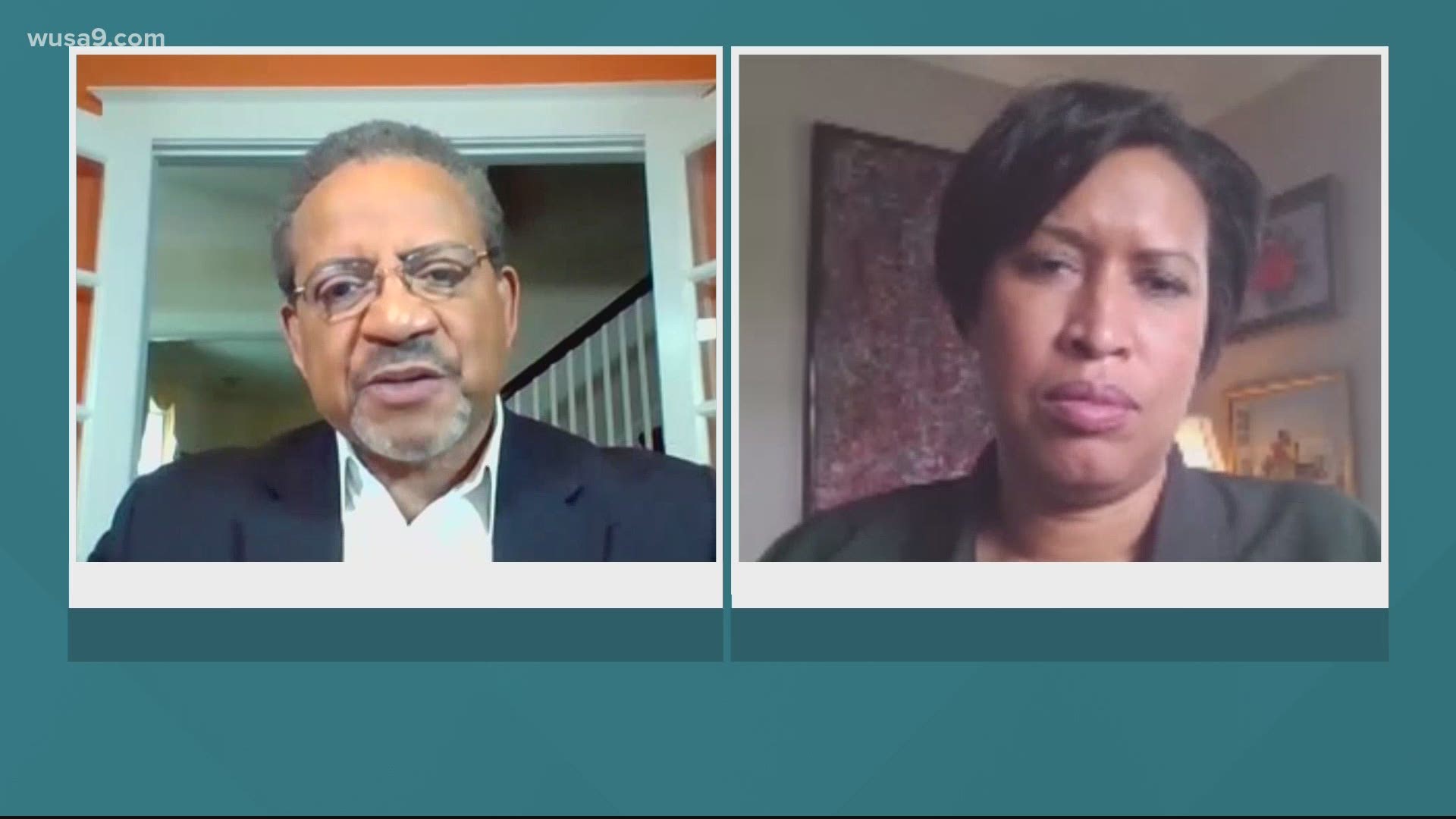WASHINGTON — Our world is gradually looking a little more normal as states consider relaxing restrictions and reopening things that allow us to leave our homes for more than just a grocery store or a medical visit.
Virginia, Maryland, and DC all have different roadmaps to what reopening looks like.
Maryland has already begun to loosen its restrictions, allowing for outdoor activities to take place despite not officially activating Stage 1 of its reopening plan.
Virginia has set a date for when it will begin Phase 1 of its reopening plan: May 15.
D.C. Mayor Muriel Bowser said May 8 that the original target reopening date of May 15 is not looking likely. While the District has made improvements in PPE and hospital capacity, officials are waiting on finalizing reopening plans. Bowser said she will work with her advisory board and health officials to decide when that official date will be, sharing a briefing with the decision won't be available until after May 15.
To make the decision on what to reopen and when, leaders of all three jurisdictions are looking for a 14-day decline in hospitalization rates and case numbers, in addition to other considerations, such as increased testing capabilities and hospital capacity.
Here's a running list of what's open and allowed in Maryland, D.C., and Virginia:
Maryland
Whether it's the beach or on the green, do so safely with social distancing still in mind:
- Golfing
- Fishing
- Tennis
- Camping
- Archery
- Hunting
- Horseback riding
- Recreational boating
The following is also allowed to reopen, with local jurisdictions getting the final say on whether they actually do reopen or not:
- Beaches (local jurisdictions may still keep them closed)
- State parks and playgrounds (local jurisdictions may still keep county and city parks closed)
- Sports fields and courts (local jurisdictions may still keep them closed)
- Dog parks (local jurisdictions may still keep them closed)
- Cemeteries for visits (local jurisdictions may still keep them closed)
Beyond outdoor activities:
- Elective surgeries are also allowed to resume in the state.
- Nonemergency procedures, including dental checkups.
- Restaurants for takeout, drive-thru or delivery
- Pharmacy
- Grocery stores
- Farmers markets
- Convenience stores
- Liquor stores
- Institutional food service and supply businesses
- Farms
- Food manufacturing and processing businesses
- Pet supply stores and veterinary hospitals
- Companies that manufacture, sell and maintain farm equipment and paper goods
While Stage 1 of reopening hasn't officially been activated, Hogan said health and state officials are using this upcoming week or to determine the next steps. But low-risk outdoor activities like those mentioned above are a good start.
Virginia
Virginia Governor Ralph Northam said the commonwealth will begin to reopen on May 15, saying he believes Virginians have done a significant job at flattening the curve.
Here's what's open in Virginia:
- Elective surgeries
- Veterinarian offices
- Dental offices
- Outdoor exercise
- Travel to medical appointments
- Engage in essential activities, including obtaining medical care that cannot be provided through telehealth and obtaining food and essential household goods;
- Travel to your essential job
- Grocery stores
- Pharmacies
- Other retailers that sell food and beverage products or pharmacy products, including dollar stores, and department stores with grocery or pharmacy operations;
- Medical, laboratory, and vision supply retailers;
- Electronic retailers that sell or service cell phones, computers, tablets, and other communications technology;
- Automotive parts, accessories, and tire retailers as well as automotive repair facilities;
- Home improvement, hardware, building material, and building supply retailers;
- Lawn and garden equipment retailers;
- Beer, wine, and liquor stores;
- Retail functions of gas stations and convenience stores;
- Retail located within healthcare facilities;
- Banks and other financial institutions with retail functions;
- Pet stores and feed stores;
- Printing and office supply stores; and
- Laundromats and dry cleaners.
You still aren't allowed to gather in groups of 10 or more people, and social distancing is required.
Northam said that Phase 1 will likely last for two-to-three weeks or longer, depending on the ongoing number of cases, hospitalizations, and deaths. After Phase 1, Northam said the state will go into Phase 2, which would allow social gatherings to bump up to 50 people and allow more and more businesses to reopen.
D.C.
D.C. Mayor Muriel Bowser spoke about the District's plan to reopen in an effort to move toward Phase 1 in accordance with White House guidelines. She also launched a Reopen D.C. Advisory Group, comprised of city government and community leaders, to monitor and guide how D.C. will reopen.
The advisory group will have 12 committees focused on key areas and will be advised by the Johns Hopkins Bloomberg School of Public Health.
Here's what you can do in D.C. right now:
- Engage in essential activities, including obtaining medical care that cannot be provided through telehealth and obtaining food and essential household goods;
- Perform or access essential governmental functions;
- Work at essential businesses;
- Engage in essential travel; or
- Engage in allowable recreational activities, as defined by the Mayor’s Order, such as walking, hiking, dog walking, biking, rollerblading, scootering, skateboarding, playing tennis, golfing, gardening, and other activities.
Note: Outdoor activities should not be conducted with others other than those from the same household.
- Going to the grocery store to buy groceries or supplies for you and/or your household.
- Engaging in activities that are essential for your health and safety of one's self, family, household members, pets, or livestock, including such things as seeking medical or behavioral health or emergency services, and obtaining medication or medical supplies.
- Caring for a family member, friend, pet, or livestock in another household or location, including, transporting a family member, friend, pet, or livestock animal for essential health and safety activities and to obtain necessary supplies and services.
- Traveling to and from an educational institution to receive meals or instructional materials for distance learning.
- Engaging in outdoor exercises, such as walking, hiking, running, or biking while abiding by CDC social distancing guidelines.
- Travel required by a law enforcement officer or court order.
- Traveling to and from a federal, state, or local government building for a necessary purpose.
As for when D.C. can actually begin re-opening, Bowser remained skeptical the District would have the necessary decreases by May 15 when neighboring state Virginia is scheduled to begin its Phase 1.
WUSA9 spoke with Mayor Bowser in April via Skype and asked if the District would be ready to reopen when Virginia and Maryland are. Bowser said that unfortunately, D.C. is not yet ready to reopen.
"We all want to get back to work, church, school, and all of those things. But if we do it in a way that we can't support with testing and contact tracing, we're going to be back to square one," Bowser said. "We're looking closely every day and I'd like to give businesses some notice. I can say that as of May 5, we won't have 14-days of decreases by May 15."

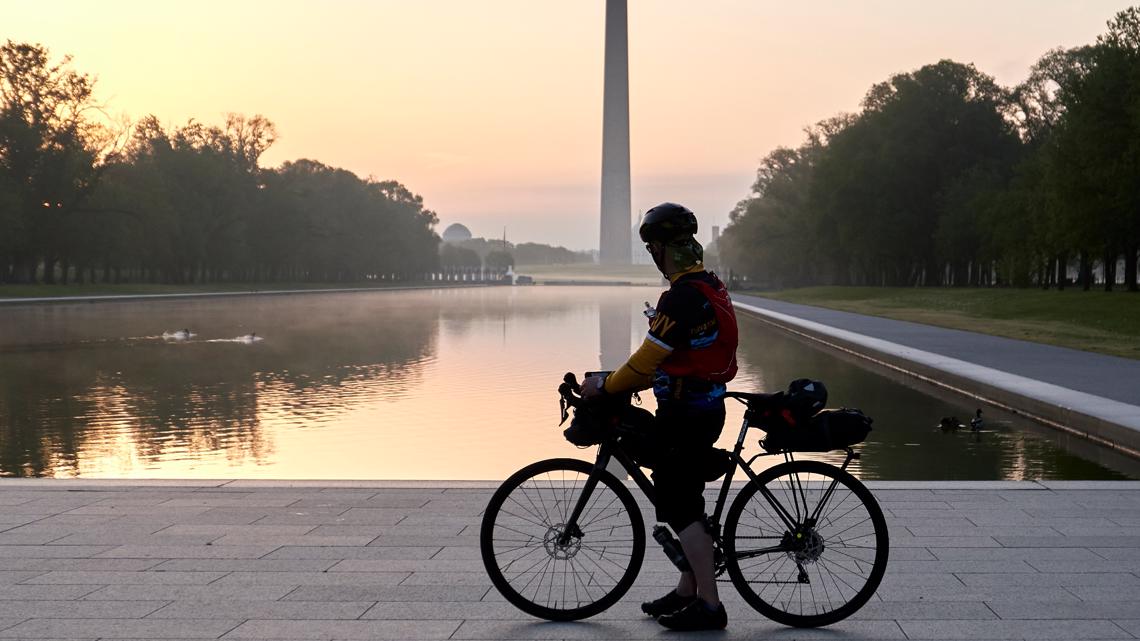
One way to see how close we are to reopening more is by looking at epidemic curves, which compares the total amount of cases reported over time and their trends, as well as a general sense of the virus's spread.

